If you’re like me, you probably adore those adorable floppy-eared bundles of joy hopping around your home. Let’s get real for a moment—as responsible pet rabbit owners, it’s only natural to wonder: Do pet rabbits carry diseases?
We want to make sure our fluffy friends stay healthy, right? Plus, there’s always that tiny voice in the back of our heads worrying about whether we could catch something from them, too. Let’s take a chill approach and explore this topic together.
We’ll dive into the rabbit health pool, checking out what diseases these little critters might be toting around and what that means for us humans. Armed with this knowledge, we can keep our pet bunnies happy and healthy while also keeping ourselves safe. Sound good? Great! Let’s hop on this journey and find out.

Unveiling the Truth: Exploring Diseases of Rabbits
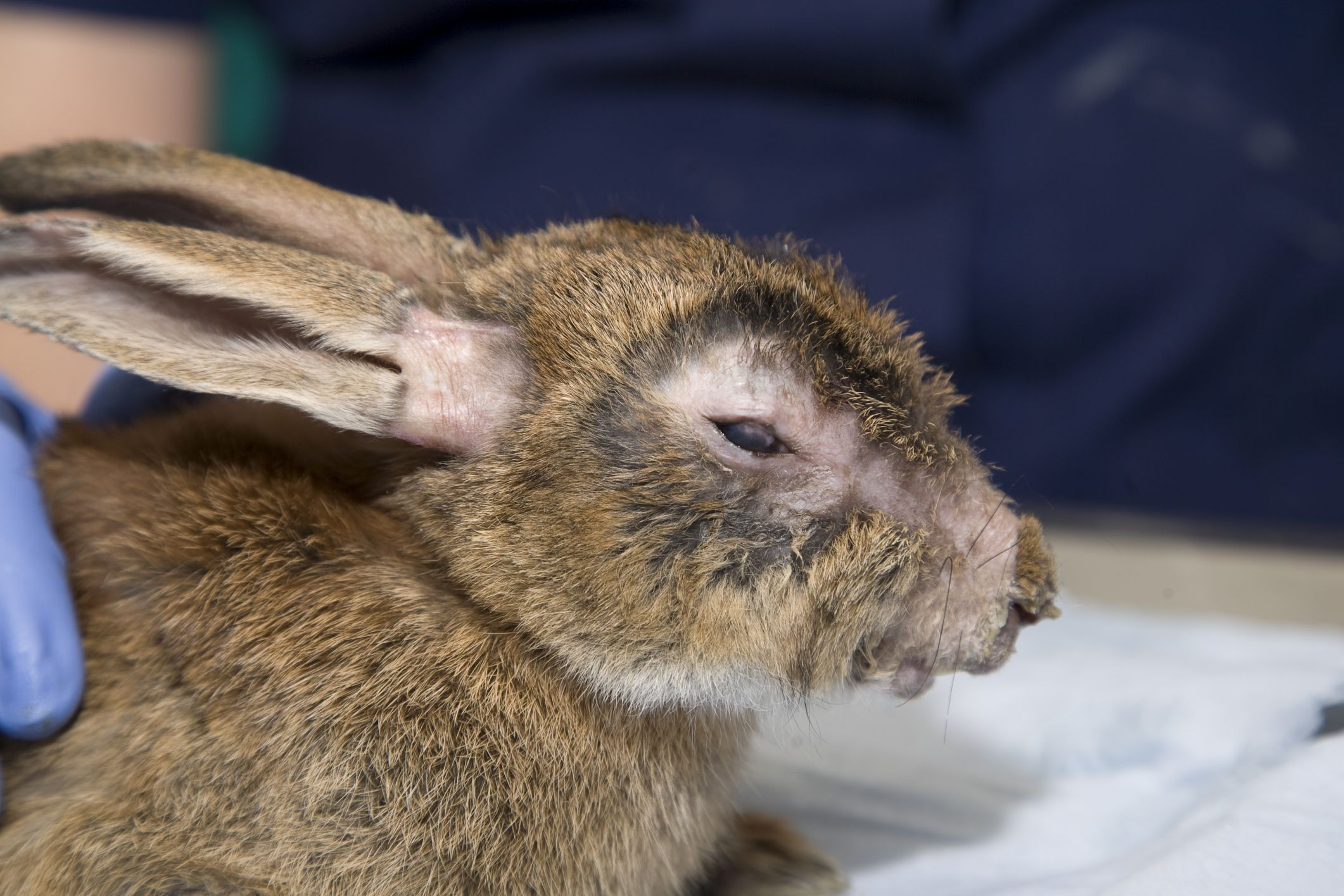
Photo by: The Spruce Pets
It’s a fact that both wild and domesticated rabbits can carry infectious diseases that might be passed on to humans, also known as zoonotic diseases. Now, don’t fret too much. Sure, these diseases are more common in wild rabbits or those living outdoors, but even our cuddly pet rabbits can carry a few.
Here’s the reassuring part: most domestic rabbits are safe to handle and hang out with. The chances of them passing on anything contagious to humans are slim. Wild rabbits, on the other hand, are a tad bit more risky if you come in contact with them, but they’re not typically big disease carriers.
Now, let’s talk specifics. Both wild and domestic rabbits carry many diseases that can potentially spread to other animals or humans. The big ones to watch out for are Tularemia and E. cuniculi, but here’s the kicker: rabbits are extremely rare in passing on any contagious disease to humans.
Of course, taking some basic precautions when handling your furry pals and ensuring they interact safely is always a good idea. So, rest easy knowing that while there’s a small risk, with a little care, we can keep enjoying our fluffy companions without worry.
Bunny Nuggets: Key Takeaways
- Pet rabbits can carry diseases that may be transmitted to humans, known as zoonotic diseases, but the risk is generally low.
- Common diseases carried by rabbits include Salmonella, Tularemia, Ringworm, Snuffles, and E. cuniculi, each with specific symptoms and transmission methods.
- Responsible pet ownership practices, such as vaccinations, preventative care, quarantine for new arrivals, and minimizing exposure to wild animals, can help prevent disease transmission and maintain rabbit health.

Unveiling the Risks: Diseases Carried by Rabbits
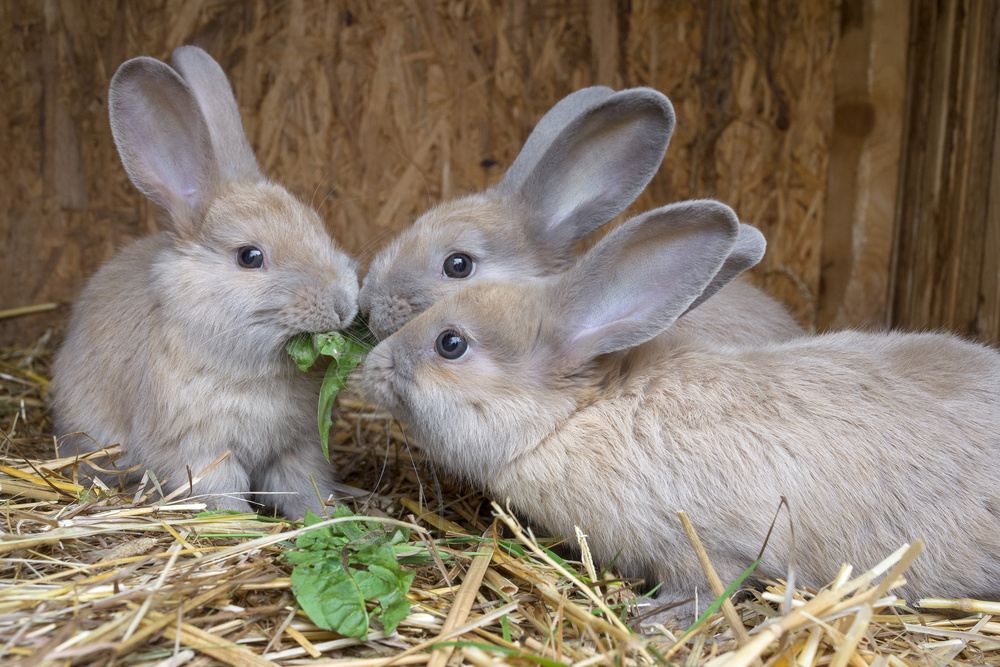
Photo by: Vets Now
Here’s the Lowdown on Diseases Carried by Rabbits
Salmonella
Let’s talk about rabbits and salmonella. Now, it’s not exactly common, but rabbits can indeed carry and transmit salmonella. If you didn’t know, Salmonella is a bacterial disease that can cause nasty diarrhea and vomiting if you catch it.
It gets serious here: this bug can hit hard on young kiddos, folks with weaker immune systems, and our elderly pals. Typically, rabbits pick up this bacteria from contaminated food or water they consume, and then they spread it through their poop.
Now, don’t get too freaked out – not all infected rabbits will show signs of being sick with salmonella. Some might seem just fine and dandy while they’re spreading it around. Here’s the good news: pet rabbits aren’t known for being big culprits when spreading salmonella. So, while it’s something to be aware of, it’s not something you need to lose sleep over.
Tularemia
Let’s chat about Tularemia, or as it’s casually known, rabbit fever. A sneaky disease caused by a bacterial infection can throw a wrench in your furry friends. Picture this: ulcers popping up, lymph glands swelling – not a walk in the park, right? And if things take a turn for the worse, those bacteria might cozy up in your lungs, giving you a taste of pneumonia.
Now, here’s the kicker: it’s not just rabbits who have to watch out for this stuff. Even your other furry buddies at home could be vulnerable to this illness.
So, how does it spread? Well, it’s like this: when you come into contact with infected rabbits, especially wild rabbits carrying the F. tularensis bacteria, that’s when trouble brews. Usually, these wild rabbits are at the heart of these outbreaks, earning that “rabbit fever” nickname. You can catch it through ticks or other bugs that have rubbed elbows with an infected rabbit. Or, if you’re in the unfortunate position of crossing paths with a deceased infected critter, that’s another route to catching it.
Ringworm
Ringworm, characterized by circular rashes on the skin and scalp, is a fungal infection. While not particularly dangerous, it can affect various pets, including rabbits. These bothersome and itchy rashes can cause hair loss and easily spread to other body areas, such as the paws or fingers. It’s crucial to be vigilant, especially if you have other infected animals in the household.
Ringworm spreads through contact with contaminated surfaces. If your rabbit has ringworm, petting and touching your skin can transmit the rash. Conversely, if you or any of your other pets contract ringworm, it can be transferred to your pet rabbit through touch.
Snuffles
Snuffles, an upper respiratory bacterial infection, manifests as cold-like symptoms in rabbits. If the clinical signs are overlooked, this bacterial infection can become life-threatening, significantly impacting rabbits. However, it’s worth noting that many rabbits carry the bacteria in their nasal passages without showing any active symptoms, highlighting the complexity of rabbit diseases and bacterial infections.
Typically, Snuffles are caused by the bacteria Pasteurella multocida. If an individual is bitten by a rabbit carrying this bacteria, there’s a potential risk of the wound becoming infected. However, severe infections resulting from rabbit bites affecting rabbits are rare occurrences.
Another bacterium that triggers symptoms similar to Snuffles in rabbits is Bordetella bronchiseptica. This bacterium is known to induce kennel cough in dogs and can lead to severe illness in guinea pigs. Given that rabbits can harbor this bacterium without displaying any clinical symptoms, it’s generally advisable to maintain separate living spaces for pet rabbits and guinea pigs. This precaution helps prevent transmission and minimizes the risk of rabbits exhibiting clinical signs of illness.
Cuniculi
Alright, let’s chat about E. Cuniculi. It’s a fungal parasite that can wreak havoc in rabbits, causing serious and scary symptoms. We’re talking about neurological disorders and even paralysis—not something you want your fluffy buddy to deal with.
Now, here’s the thing: even though it’s a big deal for rabbits, some of them can have it and seem perfectly fine. Talk about tricky, huh? These affected rabbits may carry the parasite in their systems without showing signs.
For humans and other pets, it’s a gray area. In most cases, it’s not a big deal—no serious illnesses. But here’s the kicker: if you come into direct contact with infected urine and happen to have a weakened immune system, things could get dicey. Still, the chances of getting seriously ill are slim unless your immune system is compromised.
Rabbits can spread E. cuniculi through spores found in rabbit urine. A mother rabbit can also pass it on to her offspring during pregnancy. It’s worth noting that affected rabbits may show signs of the infection.
Here are some additional health concerns affecting rabbits.
By: Rabbit Love
Protecting Your Rabbits: Essential Strategies for Preventing Disease
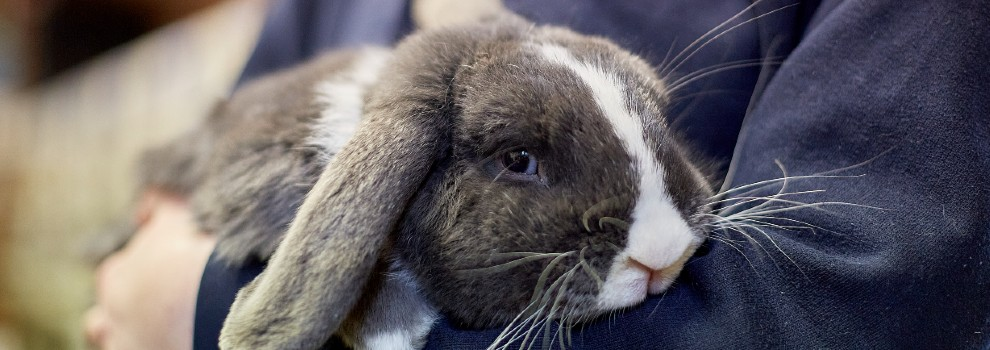
Photo by: RSPCA
Alright, let’s dive into some important ways to keep your rabbits healthy and disease-free:
Vaccinations
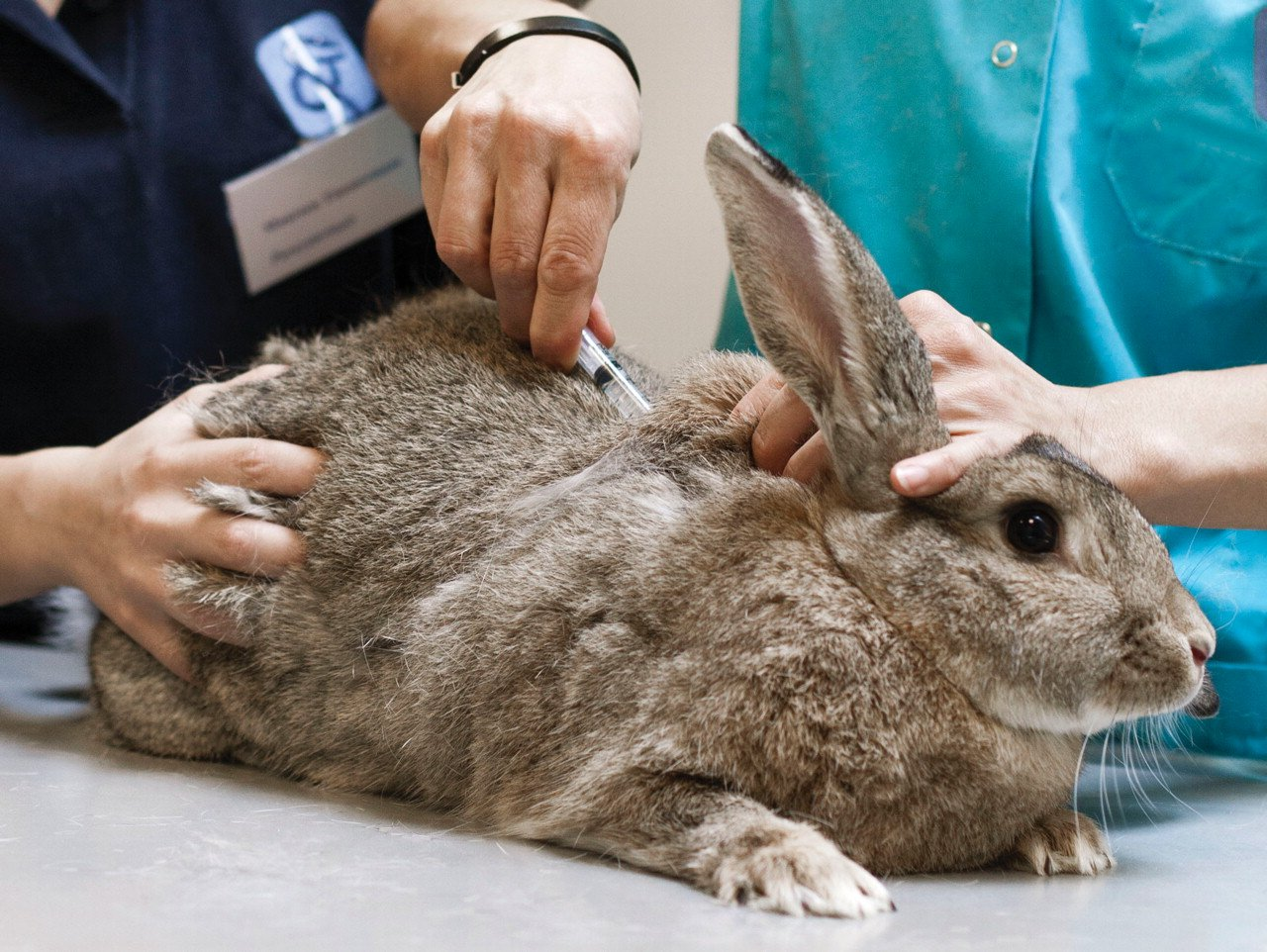
Photo by: Minster Veterinary Centre
First things first, have a chat with your vet about vaccinations. There are vaccines available for serious rabbit diseases like Myxomatosis and Viral Hemorrhagic Disease (VHD). These diseases can be real troublemakers and even fatal, especially if your rabbit hangs out outdoors or in areas where these diseases are common.
Preventative Care
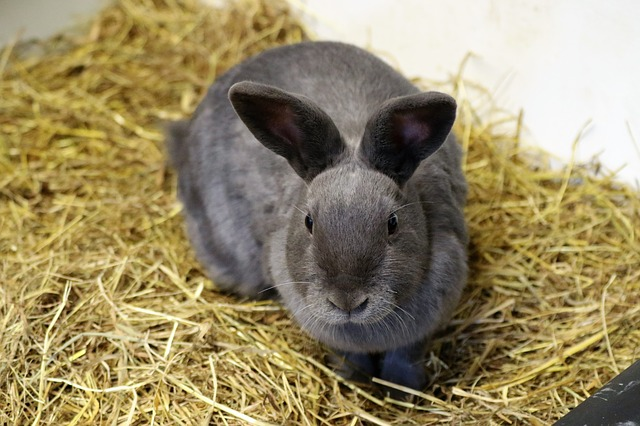
Photo by: Vets Now
Now, onto preventative care. Keep your rabbit’s living space squeaky clean by tidying up their hutch or enclosure. This helps keep nasty bacteria and parasites at bay, reducing the risk of illness.
Ensure your furry buddy gets a balanced diet of hay and fresh veggies. Good nutrition helps keep their immune system in tip-top shape, ready to avoid unwanted infections.
Remember parasite control! Use vet-approved medications to keep fleas, mites, and worms from bothering your bunny. These tiny creatures can bring about significant discomfort and even facilitate the spread of diseases, underscoring the importance of staying vigilant and proactive.
Quarantine New Arrivals
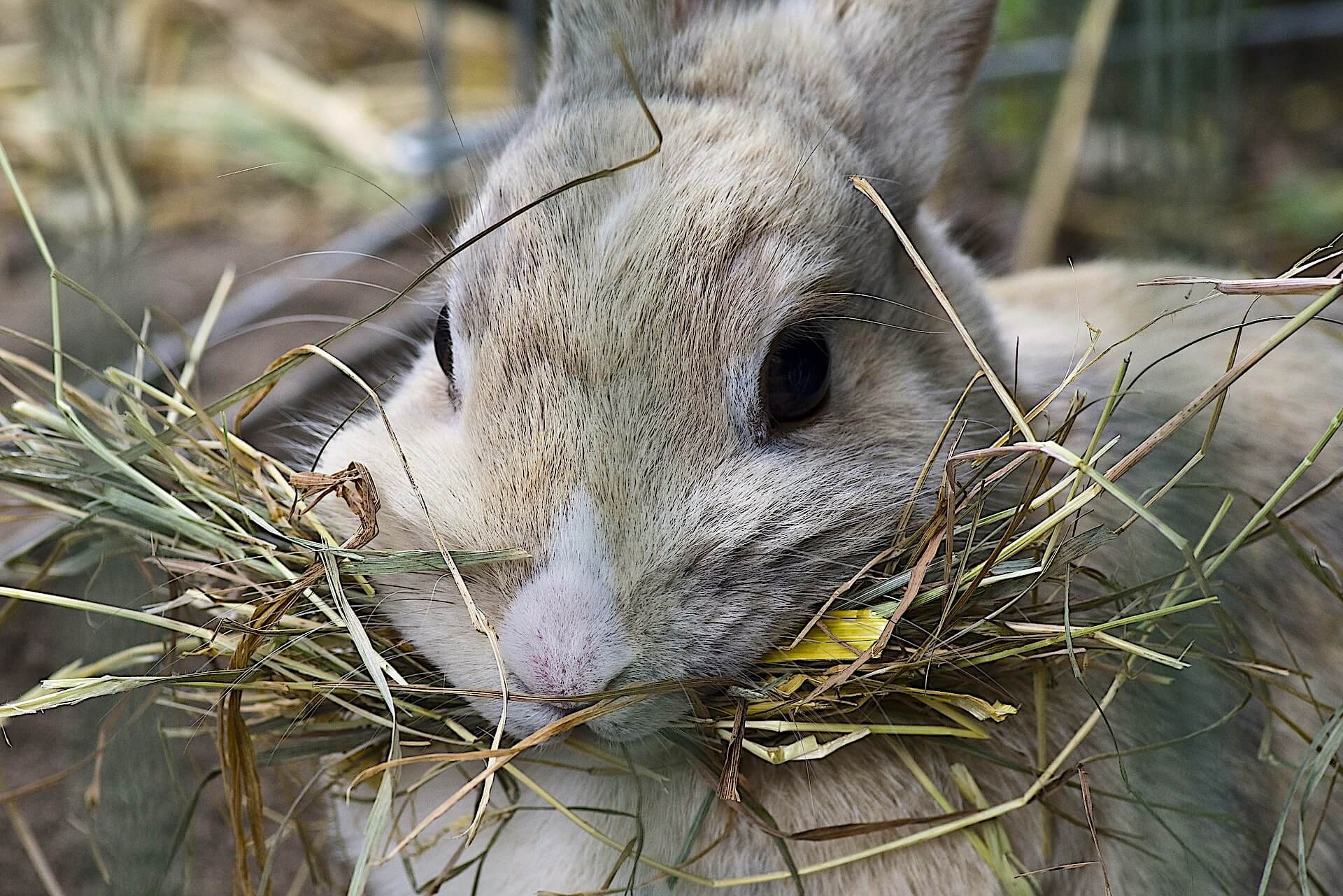
Photo by: Animal Trust
If you’re bringing a new rabbit into your home, play it safe and keep them separate for at least a month. This gives you time to watch for any signs of illness before letting them mingle with your existing rabbit crew.
Minimize Exposure
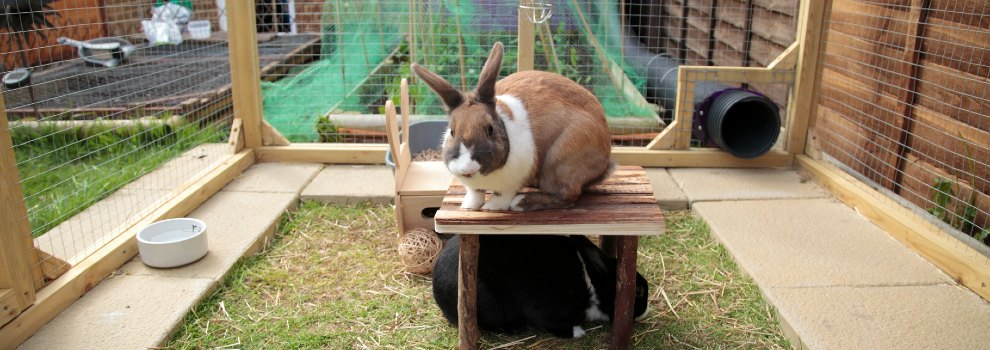
Photo by: RSPCA
Keep wild animals, especially infected ones, at arm’s length. They can carry diseases that can easily spread to your pet rabbit, so avoiding wild animal hangouts is best.
If your rabbit enjoys the great outdoors, ensure their hutch is snug and secure, protecting them from the elements and pesky predators like mosquitoes. Speaking of mosquitoes, consider bringing your rabbit indoors during peak mosquito season or if you live in an area with a high risk of disease.
General Health Awareness
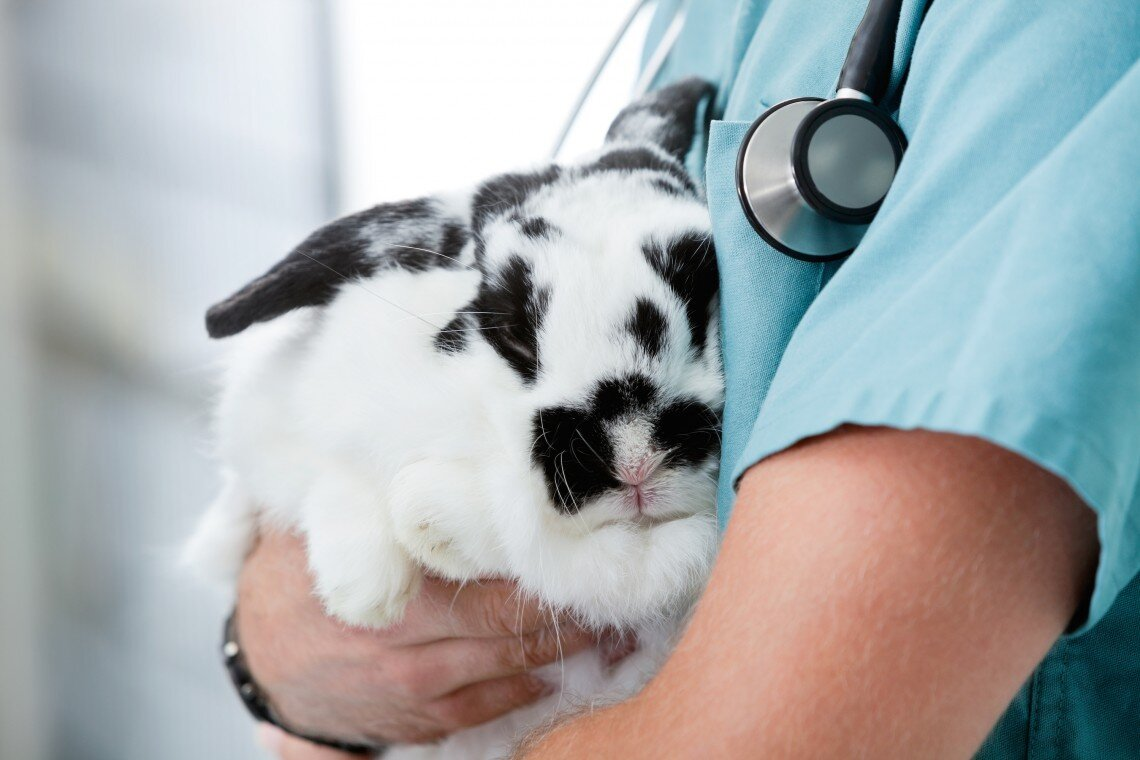
Photo by: Rabbit Advocate
Regular checkups with your vet are a must for keeping tabs on your rabbit’s overall health. Catching any potential issues early can make all the difference in their recovery.
Watch young rabbits, as they may be more vulnerable to diseases. Get to know their normal habits and be on the lookout for any changes in appetite, activity level, or appearance. If anything appears unusual, do not hesitate to reach out to your veterinarian.
By following these tips, you’ll create a healthy and safe environment that helps keep your furry friend happy and thriving, away from potential diseases lurking in the shadows.

Here are additional videos to help you maintain your rabbit’s health and prevent health issues.
By: PDSA
Ensuring Your Rabbit’s Health: Keeping Them Free from Diseases
As pet owners, we went on quite a ride exploring the health side of rabbit ownership. It was an adventure brimming with highs, lows, and plenty of heartwarming cuddles. But you know what? Through it all, our dedication to our furry friends shone bright.

We learned that while rabbits could have their share of health concerns, with a little love and some smart care routines, we managed to keep those worries at bay. Our experiences with our fluffy pals were nothing short of heartwarming. They brought us so much joy and maybe a few moments of concern. That was all part of the package, right?
So, as we wrap up this chat about rabbit health, let’s keep the love flowing. Let’s shower our rabbits with all the care and attention they deserve. And hey, if you ever need more info or helpful tips, don’t forget to swing by the Rabbit Hop website. There was plenty more rabbit goodness waiting for you there.
Here’s to our furry buddies – may they have kept hopping happily through life, bringing us endless smiles and snuggles along the way. And remember, our love and care made all the difference in their world. After all, preventing diseases in our rabbits was our top priority!
FAQs

What Diseases Are Contagious Between Rabbits?
While numerous zoonotic diseases can be transmitted between various species of animals and humans, there are also highly contagious diseases that specifically impact rabbits. Some diseases that can easily spread among rabbits have already been addressed (such as snuffles and E. cuniculi), but it’s important to highlight two contagious viruses in particular.
- Myxomatosis: This virus is deadly and highly contagious, leading to symptoms like fever and swelling around the nose and eyes. While prevalent among wild rabbits in Australia and Europe, a vaccine is only available in the EU.
- RHDV and RHDV2 are other lethal viruses, widespread in regions like Australia, Europe, and certain parts of southwestern North America. As of now, a vaccine is solely accessible in the EU.
Do Rabbits Carry Rabies?
Although all mammals, including rabbits, have the potential to contract rabies, it’s exceedingly rare for rabbits to carry the virus. Additionally, unlike most mammalian species, there have been no documented cases of rabbits transmitting rabies to humans.
Is It Safe to Handle a Wild Rabbit?
It’s advisable to refrain from touching a wild rabbit for several reasons:
- Stress on Wild Animals: Wild rabbits and prey animals experience stress from human contact. This stress can compromise their immune system, making them more vulnerable to diseases.
- Risk of Abandonment: Handling wild rabbit babies may result in their mother abandoning them if she detects unfamiliar scents, potentially leading to fatal consequences for the young.
- Zoonotic Diseases: While the likelihood is generally low, wild rabbits can transmit diseases to humans.
- Potential Injuries: Even seemingly calm wild rabbits may scratch or bite if threatened.


